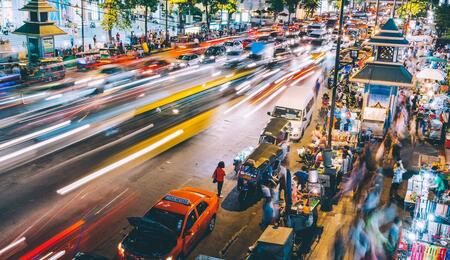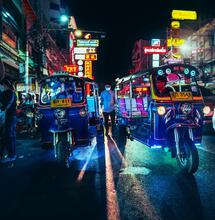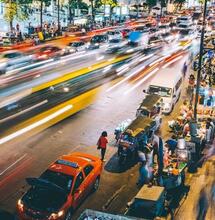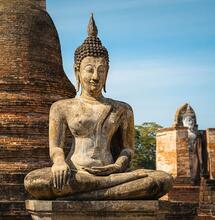Thailand's U-Turn on Cannabis

Once known for the harsh treatment of anyone caught carrying illegal cannabis, Thai authorities have taken a U-turn on their cannabis policy over the last couple of years. Well, some harsh policies and limits on THC still remain in place, but it's only fair to acknowledge authorities' efforts to ease access and use of the plant. The culmination point was June 9, 2022, the date when the kingdom officially went on to decriminalize cannabis. To mark the moment, the government launched a campaign where it would distribute one million cannabis plants for free for people to plant. Another gain from decriminalization is that over 3,000 individuals previously convicted of cannabis-related offenses are being released from prison.
This June marks the start of a new era for Thailand and hopefully the broader region of Southeast Asia. Thailand became the first country in the realm to decriminalize cannabis.
Cannabis use in Thailand has been encouraged for health and medical reasons. However, a majority of users are expected to solely use it for recreation, even though this is not what the government exactly aims at with its decriminalization effort.
New Regulation on Growing
Cannabis is no longer listed as a narcotic in Thailand. This allows anyone living in the country to use and cultivate cannabis freely. To mark the transition to legal cannabis, the government is organizing a giveaway of million cannabis plants.
Cannabis activists are also hosting various festivities over the weekend to celebrate the milestone.
As of June 9, Thai residents may grow "as many cannabis plants" as they wish in their homes if it's for medical purposes. The generous plan has been orchestrated by Health Minister Anutin Charnvirakul.
The first 1,000 plants were distributed in the northeastern province of Buriram. But on the occasion, Mr. Charnvirakul warned, "don't use it and sit smiling at home and not get any work done."
Those who want to grow cannabis at home are only required to register via the Plook Ganja mobile app first. On the other hand, commercial growers are required to obtain a license from the government. Manufacturers as well need to follow a list of strict regulations for any product they want to sell.
People Need More Education on New Laws
Decriminalization in Thailand also means regained freedom of 3,071 individuals who have ended up behind bars because of cannabis. While this is definitely great news, it will take a while until everyone feels truly free and safe to use cannabis.
Just recently, a 56-year-old woman was arrested at her home in eastern Chonburi province as plainclothes police officers found a cannabis plant in her house, according to CNN.
The woman's spouse clarified she used the plant as a medicine to treat high blood pressure and diabetes. The four officers involved in the woman's arrest have since been disciplined. It is considered that they lacked knowledge on how to implement the new laws.
Local activists warn that some loopholes in the law remain, which might send conflicting messages. Also, they say that ordinary people, including law enforcers, need to receive as much information as possible to educate on cannabis and the limits of its legal use.
Different Visions of Legalization
The legality of cannabis in Thailand revolves around the idea of medical use, however, unsurprisingly, the overall impression is that most people would instead consume it for recreational purposes.
Thailand has a population of 70 million, and it is estimated that close to 2 million Thai citizens aged 18 to 25 have used cannabis for "non-medical" purposes throughout 2021. That is double the number in 2020.
Thai authorities are explicitly against recreational cannabis smoking in public. Basically what they are saying is, no joints, please even though we made the plant legal. Authorities retain the right to detain anyone for causing "public disturbance via consumption of cannabis." Troubling others with the smell of cannabis smoke can cost a fine of up to THB 25,000 ($720) and jail time of up to three months.
Harsh limits on THC extracts remain in place. Products must not contain more than the 0.2 percent limit of THC. Any product that breaches this limit classifies as a narcotic and threatens a prosecution.
While this may not exactly be the way how most of us ideate decriminalization, it's still a big step forward for Thais. How the Thai government imagines its cannabis laws also speaks of differing visions on decriminalization in a cross-cultural context. Every country brings its own vision of how legal cannabis should be implemented. And who knows, after a couple of years they may say, okay, smoking joints on the street is also okay now!









